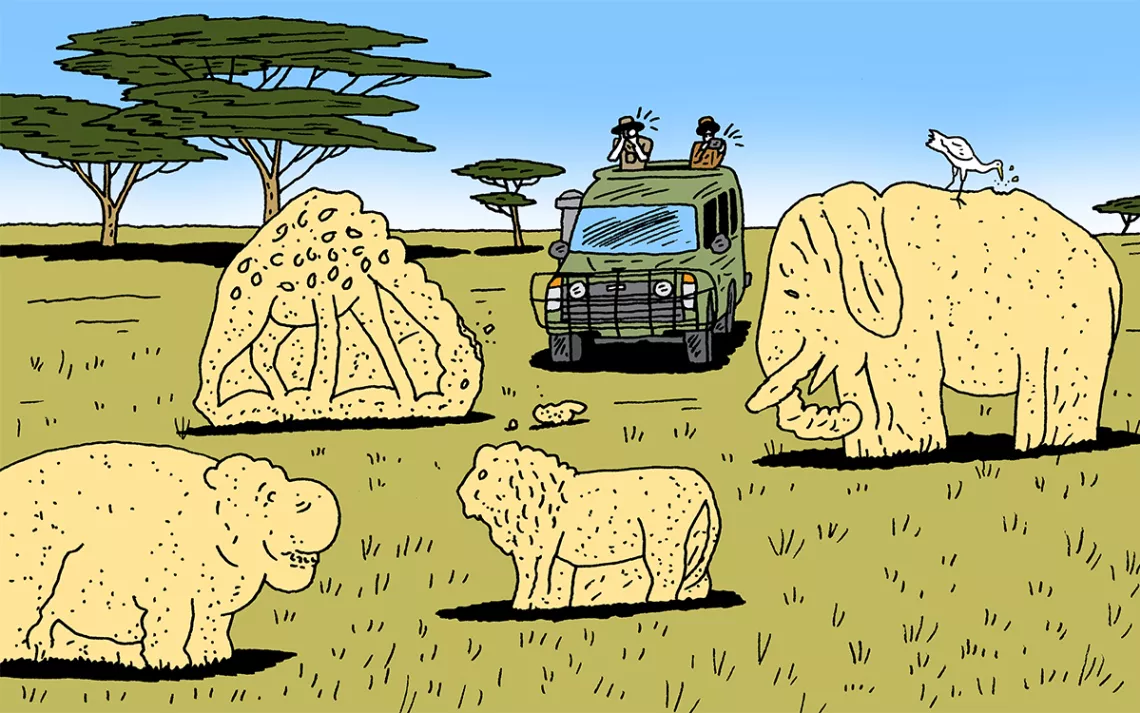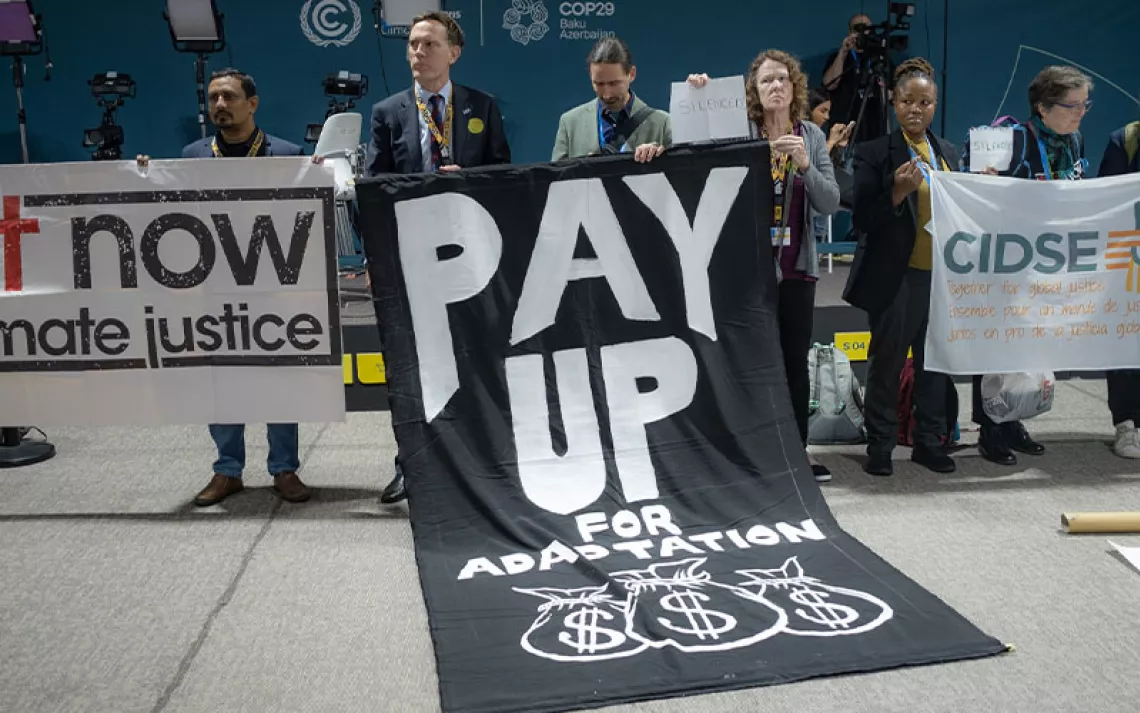ICYMI: Free the Animal Crackers, Super Snakes, Too Hot for Sex & More
A weekly roundup for busy people

Illustration by Peter Arkle
Bowing to pressure from People for the Ethical Treatment of Animals, Nabisco releases animal crackers from their cages.
The Trump administration attempts to roll back the Obama-era Clean Power Plan. The EPA admits that the move will increase air pollution and kill 1,400 people each year.
Governmental funding for research on climate change is being held up by a review process overseen by a former high school football teammate of Interior Secretary Ryan Zinke.
Kelvin Droegemeier, President Trump’s nominee to be director of the White House Office of Science and Technology Policy, downplays the dangers of climate change: “My feeling is the planet . . . you can kick it in the butt really, really hard, and it will come back."
Maersk, the world’s largest shipping company, tests routing container ships across the melting Arctic Ocean.
In some parts of the Arctic, the ground no longer freezes, even in winter.
Floods brought on by the worst monsoon in a century kill more than 400 people in Kerala, India.
This summer’s run of sockeye (red) salmon in Alaska is the worst in living memory.
Australia abandons its targets for greenhouse gas reductions.
Because of a prolonged drought in Australia, herds of thirsty emus invade the outback town of Broken Hill.
Indian and Burmese pythons in South Florida are crossbreeding. The result may be “super snakes” that can thrive in more varied habitats.
Documents obtained by the Sierra Club show that former EPA administrator Scott Pruitt made only one phone call from his $43,000 soundproof phone booth.
The weed killer glyphosate is found in Cheerios, Quaker Oats, and most other oat cereals and energy bars.
Spain’s forestation has increased from 28 percent in 1980 to 37 percent today. Ireland’s forest cover has grown from 1 percent in 1922 to 11 percent today.
In 2017, the United States added more than 7 gigawatts of new wind capacity. Wind now provides 6.3 percent of U.S. energy.
Authorities in Bogota, Columbia, advise residents suffering from a heat wave to keep cool by abstaining from sex.
 The Magazine of The Sierra Club
The Magazine of The Sierra Club



